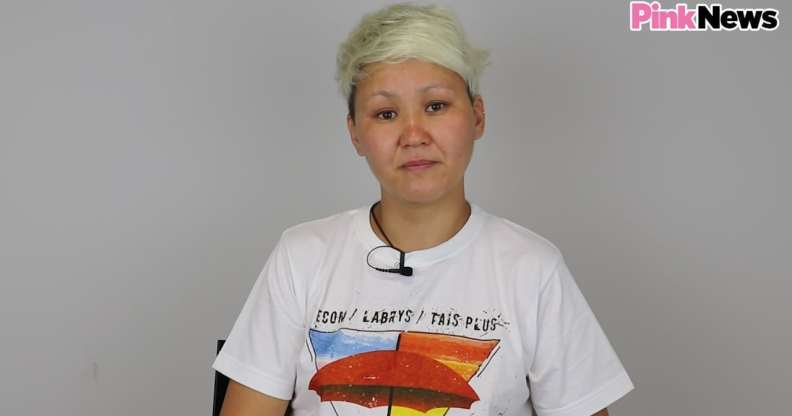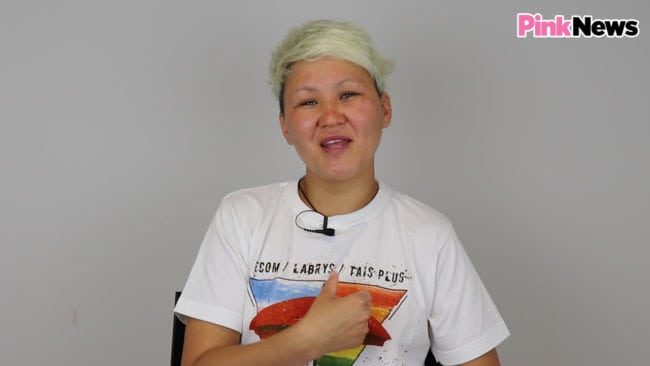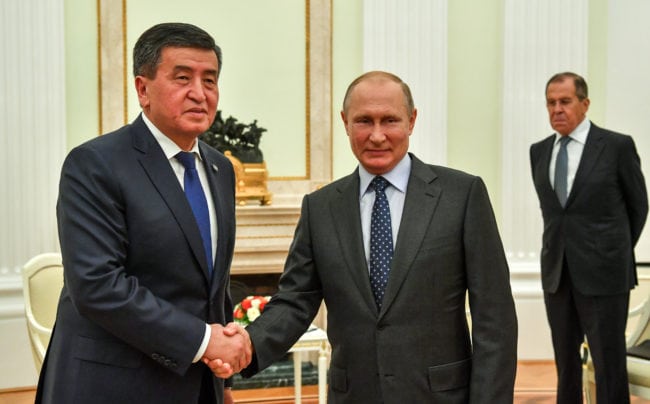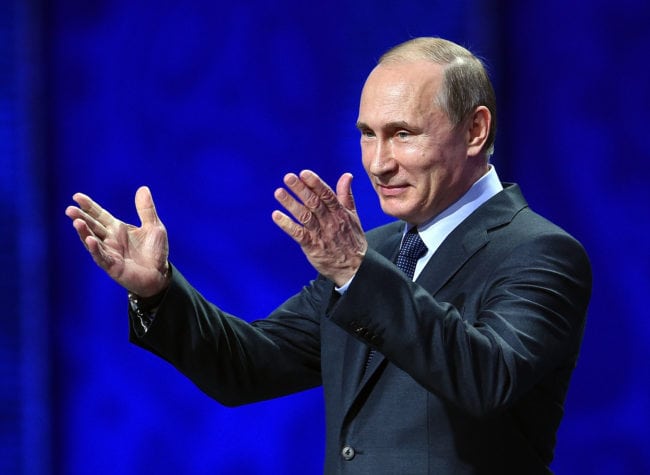Exclusive: Police are ‘blackmailing gay and bisexual men’ in Kyrgyzstan

Nazik is fighting for LGBT+ rights in Kyrgyzstan (PinkNews)
Police in Kyrgyzstan are using false nicknames on LGBT dating apps to entrap gay and bisexual men, an NGO activist has told PinkNews.
Nazik, an advocate for LGBT+ rights in Kyrgzstan, has been “beaten with a bottle” because she is a lesbian.
“I know dozens of cases myself and I personally had to deal with very aggressive and homophobic police,” she told PinkNews.
“My gay friend and I were attacked by a group of men in a park. They beat us up. They hit me on the head with a bottle because I am a lesbian, my friend is gay and we do not look the way people should look in Kyrgyzstan.
“When we called the police asking to protect us, they acted very unprofessionally and expressed their homophobic views.
“They asked me whether I was married or not and what my sexual orientation was. And when I tried to write a complaint against the perpetrators they did not want to accept it.”
Strongly influenced by Russian politics, Kyrgyzstan is an increasingly hostile environment when it comes to LGBT+ rights. The Kyrgyz government even “copied Russian legislation” to draft a bill on “gay propaganda.”
Police reportedly target gay and bisexual men on dating apps with the aim to blackmail them for sums ranging between 5000 and 30,000 soms – the equivalent of around 70 and 500 US dollars.
“What happens very often is that police collaborators register on dating sites using various nicknames,” Nazik explained.
“They organise a date and when gay and bisexual men show up, the police take away their phones.

Nazik is calling on international allies to speak out (PinkNews)
“They start blackmailing them, saying that they will report to their parents that they ‘engage in non-traditional sexual relations.’
“Through threats and blackmailing, they extort rather large sums of money.
“In such moments you understand that the police will not protect you and neither will state authorities that are meant to protect you.
“You realise how powerless you are.”
Despite homosexuality being decriminalised in 1998, the past five years has seen a major crackdown on LGBT+ rights, which Nazik believes stems primarily from religion and Russia’s “huge” influence.

Russian President Vladimir Putin shakes hands with Kyrgyz President Sooronbai Jeenbekov (YURI KADOBNOV/AFP/Getty Images)
“Those most affected are gay men and trans women who are sex workers.
“Society relies on traditional, family values and combats what’s against religion, whether it’s Islam or Christianity.
“And this post-Soviet heritage has a strong influence on Kyrgyzstan. I consider Russia’s influence to be very strong.
“To me this is actually a very painful issue, also when people talk about Putin.
“I am not scared to talk about Putin, it is just that my family is this way.
“They love Putin and we often have fights with regards to this issue.

Putin is viewed as hugely influential (Dennis Grombkowski/Getty Images)
“It’s very difficult because if LGBT rights are disregarded at the state level, it is then difficult for one human rights organisation to fight against this.”
Nazik works alongside various organisations and recently spoke at the Queer Asia conference, highlighting the need to advocate for LGBT+ rights in Central Asia.
Despite the ongoing risks, she is keen to stay positive in the fight for LGBT+ rights and calls on international allies to apply pressure.
“There are nevertheless minor achievements. For instance, when we work with medical professionals, we establish friendships with doctors. This is truly inspiring, and we are able to work closely with drug users, sex workers and also people who are HIV positive.
“But we would like LGBT issues in Kyrgyzstan to receive more attention on the international level. You could help shed light on these topics. We can really feel the spirit of solidarity and partnership.”

